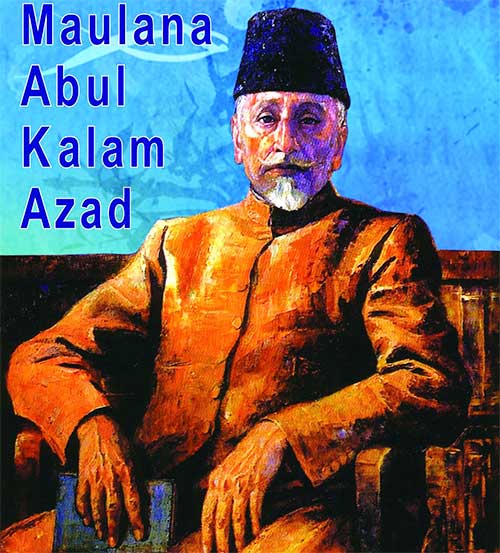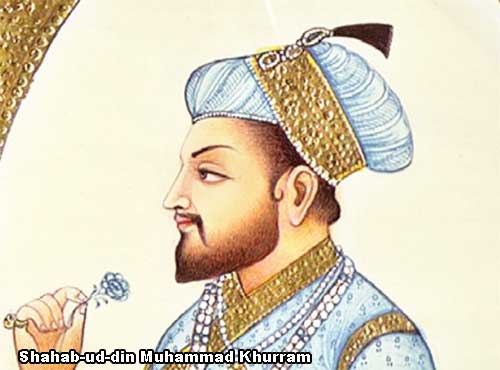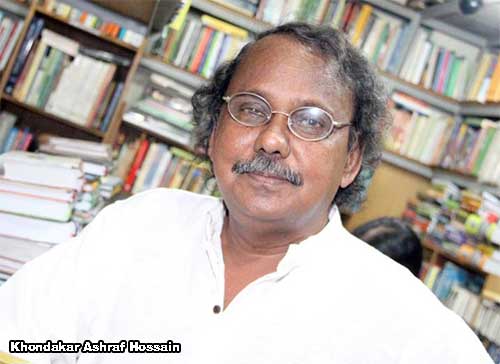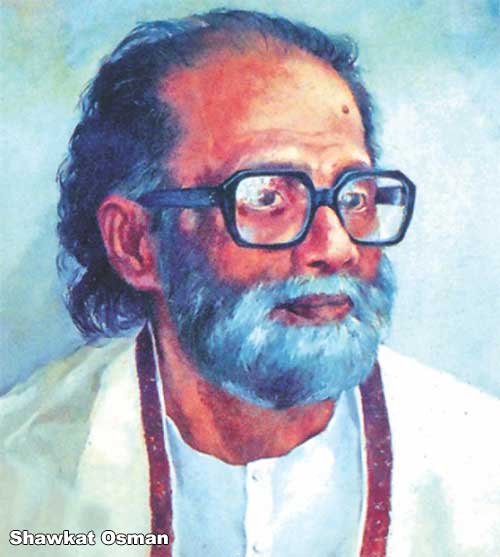
Maulana Abul Kalam Azad was a revolutionary thinker, visionary, and an influential leader in the Indian independence movement. He was critical in shaping India's future and advocating for religious unity, education reform, and social progress. His contributions to modern India extended beyond politics and are still recognized today for their impact on Indian society.

Early Life and Background of Maulana Abul Kalam Azad
Born on November 11, 1888, in Mecca, then part of the Ottoman Empire, Maulana Abul Kalam Azad came from a distinguished family with a strong Islamic background. His father, Maulana Khairuddin, was a scholar who migrated from India to Mecca after the 1857 Indian rebellion against British rule. Azad's mother hailed from an Arab family. When Azad was young, his family returned to India and settled in Calcutta (now Kolkata).
Azad was homeschooled and received traditional Islamic education at a young age. He mastered Arabic, Persian, Urdu, and Hindi and gained deep knowledge of Islamic theology, philosophy, mathematics, and history. While he was rooted in Islamic scholarship, Azad was a progressive thinker who believed in the importance of broad knowledge. His intellectual curiosity led him to study Western philosophy and political thought, significantly influencing his approach to the independence movement and his vision for India.
Azad's Entry into Journalism and Literary Contributions
Azad's introduction to journalism became a turning point in his life. In 1912, he started a weekly journal, Al-Hilal, which aimed to foster Indian nationalism among Muslims and promote the idea of a united India. Al-Hilal became extremely popular and was noted for its bold criticism of British rule and advocacy for Hindu-Muslim unity. Azad argued that Muslims should not seek a separate identity but be part of a united India, which he believed was crucial for the future of Indian independence.
However, the British government banned Al-Hilal in 1914 due to its anti-colonial stance. In response, Azad launched another weekly, Al-Balagh, which continued to inspire Indians to fight for freedom. His writings influenced many young Indians, and he became a widely respected leader. His strong advocacy for Hindu-Muslim unity and his commitment to independence made him a significant threat to British colonial authorities.
Philosophy and Beliefs of Maulana Abul Kalam Azad
Azad was a devout Muslim who was deeply rooted in his Islamic beliefs. However, he was also an ardent nationalist who believed that all religious communities in India could coexist peacefully. He argued that religion should unite rather than divide people and was deeply committed to secularism. This commitment to secularism was influenced by his understanding of India's diverse social and religious fabric, which included Hindus, Muslims, Sikhs, Jains, Buddhists, and Christians.
Azad was particularly vocal about his opposition to the partition of India based on religious lines. He foresaw the divisive effects of such a partition, predicting that it would lead to bloodshed and long-term strife. Unlike other leaders, he was aware of the repercussions of a split and actively argued for Hindu-Muslim unity.
The Role of Maulana Abul Kalam Azad in the Indian Freedom Movement
Maulana Abul Kalam Azad's role in the Indian freedom movement was invaluable. A staunch supporter of Mahatma Gandhi's philosophy of non-violence, Azad was an ardent advocate for civil disobedience and non-cooperation with British authorities. In 1920, he joined the Indian National Congress and became a prominent member, contributing to its campaigns for independence.
During the Non-Cooperation Movement, Azad traveled extensively to rally support for the freedom struggle. His charisma, knowledge, and dedication to the cause inspired people across religious and regional lines. He spoke eloquently about the importance of unity and was particularly influential among the Muslim community.
In 1923, at 35, he became the youngest President of the Indian National Congress, marking a historic moment in the freedom struggle. He used this position to strengthen Hindu-Muslim unity and emphasize the importance of non-violence. Azad continued to support the freedom movement, even when the British authorities arrested him multiple times. Azad's resolve remained unshaken despite his hardships, and he advocated for India's independence and unity.
Maulana Abul Kalam Azad's Vision for Education in India
Azad's vision for a modern, secular, and democratic India extended beyond independence. He understood the critical role of education in shaping a nation and believed that education should be accessible to all Indians, regardless of caste, creed, or religion. As India's first Minister of Education, he laid the foundation for the country's educational system.
He advocated for universal primary education, technical and vocational training, and the establishment of higher educational institutions. He emphasized the importance of science and technology in modern education and promoted the creation of a network of universities and institutions that would foster scientific research and intellectual growth. Azad's efforts led to the establishment of institutions such as the Indian Institutes of Technology (IITs) and the University Grants Commission (UGC), which have become pillars of higher education in India.
Opposition to the Two-Nation Theory
One of the most defining aspects of Azad's political stance was his opposition to the Two-Nation Theory, which argued that Hindus and Muslims were distinct nations and could not coexist in a single country. The theory eventually led to the partition of India in 1947. Azad was deeply troubled by the prospect of partition and believed that it would lead to violence and enduring hostility between India and Pakistan.
In his view, religious identity should not dictate national identity, and he believed in a pluralistic society where different communities could live together peacefully. Azad's ideas were ahead of his time, and while the partition did occur, the repercussions he foresaw are still relevant today, with ongoing tensions between the two nations.
Relationship with Other Leaders and His Legacy
Azad shared a close relationship with other prominent leaders of the independence movement, including Mahatma Gandhi, Jawaharlal Nehru, and Sardar Vallabhbhai Patel. His ideological proximity to Gandhi's vision of a secular and inclusive India made him a trusted ally in the fight for freedom. However, he did have ideological differences with leaders like Muhammad Ali Jinnah, who advocated for a separate state for Muslims.
Azad's contributions to India's freedom struggle and nation-building have left an enduring legacy. He was a visionary leader who believed in the power of education, secularism, and unity. His efforts laid the foundation for an inclusive India where people of all religions and backgrounds could coexist peacefully.
Maulana Abul Kalam Azad's Views on Social and Economic Reform
Beyond his political beliefs, Azad was a strong proponent of social and economic reform. He was concerned about poverty and inequality in India and believed that true independence would only be meaningful if it addressed these issues. He argued for land reforms, labor rights, and economic policies that would benefit ordinary people.
Azad understood that for India to become a powerful and prosperous nation, it would need to address the socio-economic challenges that affected most of its population. He promoted policies to reduce poverty, improve living standards, and provide equal opportunities for all citizens.
The Literary Contributions of Maulana Abul Kalam Azad
In addition to his role as a political leader, Azad was an accomplished writer and scholar. His works reflected his deep understanding of religion, philosophy, and history. His most famous work, India Wins Freedom, offers a personal account of India's independence struggle and provides valuable insights into the challenges and triumphs of the freedom movement.
Azad was also known for translating the Quran and interpreting Islamic teachings. He sought to make Islamic philosophy accessible and relevant to modern-day issues, which earned him respect as a religious scholar. His writings continue to be studied for their intellectual depth and progressive views on religion and society.
Commemorating Maulana Abul Kalam Azad Today
Azad's contributions to India are celebrated yearly on his birth anniversary, National Education Day in India. This day serves as a reminder of his commitment to education and the lasting impact of his vision on the country's educational landscape.
Azad's life and legacy inspire Indians, reminding them of the values of unity, secularism, and social justice. As India continues to evolve, his teachings on inclusivity, education, and social reform remain relevant and guide for addressing contemporary challenges.
(Related article: Emperor of Hindustan Jahangir)
Maulana Abul Kalam Azad was a towering figure in India's history, embodying the ideals of independence, unity, and progress. His role in the Indian freedom movement, his dedication to Hindu-Muslim unity, his vision for education, and his commitment to social and economic reform make him one of the most respected leaders of modern India. Azad's contributions have left an indelible mark on the nation, and his legacy inspires future generations.





